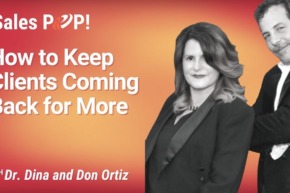Patrick Newman is an Assistant Professor of Economics at Florida Southern College and a fellow of its Center for Free Enterprise. He is also an editor of several notable works, including Murray Robarts, The Progressive Era, and the fifth volume of Conceived in Liberty: The New Republic, 1784 to 1791. Additionally, he has authored the book Cronyism: Liberty Versus Power in Early America. Today, he will be discussing the Austrian School of Economics and its relevance in solving current economic problems and building sustainable economic environments. For those unfamiliar with the Austrian School, Patrick will provide a brief overview of its key principles and ideas.
Heterodox Austrian economics differs from neoclassical economics. It emphasizes entrepreneurship and economic production framework. Austrian economics favors free markets and economic understanding above government intervention. Austrian economics’ inability to codify the entrepreneur and cynicism towards government involvement collide with academia’s reliance on government money, hence mainstream economists are skeptical.
The Austrian Business Cycle Theory
The Austrian business cycle hypothesis holds that when central banks grow the money supply and artificially decrease interest rates, entrepreneurs take on unsustainable ventures, creating inflation and recession. After the COVID-19 outbreak, governments have drastically boosted the money supply, causing excessive inflation. The Austrian business cycle theory predicts a recession, and central banks are tightening.
Currency Reforms
Austrian economics wants central banks out of the money supply and financial markets. They say central banks’ monetary growth causes unsustainable booms and busts. Austrian economics oppose central banking because of this. Austrian economics fans have embraced cryptocurrencies and bitcoin in recent years. Central banks worry that utilizing alternative money in daily transactions will lower dollar demand and tax collection. So, people are keenly awaiting the price of these assets and if governments would prohibit their adoption.
Entrepreneurs
Austrian economics define entrepreneurship differently. Entrepreneurs are business owners or forecasters who save and allocate resources for the future. Entrepreneurs don’t have to be inventors or innovators to assess a product’s profitability and longevity. People take risks to make money. Hence, Austrian economics defines entrepreneurship as taking measured risks and making uncertain judgments to thrive in a company.
Nowadays, entrepreneurship has been misinterpreted. Profits have taken center stage, but entrepreneurship is not about profits. Successful entrepreneurs should focus on other indicators like consumer demand forecasts and resource allocation. Sadly, many people misinterpret the role of entrepreneurs in the economy. Hence, entrepreneurs drive economic progress and should not be overlooked.
Labor Specialization and Free Trade
Austrian economics support free trade by promoting specialization, division of labor, and comparative advantage. They believe globalization improves quality and lowers prices and that the US shouldn’t create everything. Entrepreneurs spend according to each person’s expertise, area, or country’s strengths. High regulatory hurdles and tariffs make outsourcing and globalization unprofitable.
Our Host
John is the Amazon bestselling author of Winning the Battle for Sales: Lessons on Closing Every Deal from the World’s Greatest Military Victories and Social Upheaval: How to Win at Social Selling. A globally acknowledged Sales & Marketing thought leader, speaker, and strategist, he has conducted over 1500 video interviews of thought leaders for Sales POP! online sales magazine & YouTube Channel and for audio podcast channels where Sales POP! is rated in the top 2% of most popular shows out of 3,320,580 podcasts globally, ranked by Listen Score. He is CSMO at Pipeliner CRM. In his spare time, John is an avid Martial Artist.






Comments